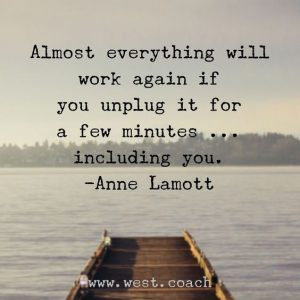Smarter not Harder?
Give, Take, Match
January 6, 2017SPOTLIGHT on Corrine Raza
January 27, 2017How do we do it all? What’s the best way to get the most out of your day and yourself?
Recently, we’ve been talking at Raza Properties about maximizing productivity while keeping balance and quality of life. Is it possible? Many folks believe it is, however it may require some adjustments to your way of “doing business.”
In an article in the Harvard Business Review by Tony Schwartz and Catherine McCarthy Manage your Time, Not your Energy they point out human instinct to respond to increased demands at work “by putting in longer hour.” This will, “inevitably take a toll on us physically, mentally, and emotionally. That leads to declining levels of engagement, increasing levels of distraction, high turnover rates, and soaring medical costs among employees.”
There’s got to be a better way.
Entire industries are devoted to finding the secret of how to increase productivity without killing ourselves in the process. Advanced technology, assistants, planners, updated apps, life coaches, and resolutions…Still at the end of the day it seems as humans (and dare we say entrepreneurs and business professionals may be the worst offenders) we continue to revert to the belief that if we grind longer, push harder, sacrifice more personally that we will in the end reach “the destination.” Yet studies show this is not the case– Or if we get there it may be at the expense of our health or important relationships.
Why do we believe we will be the one to defy the odds?
So Schwartz and McCarthy are urging employees to shift from trying to manage time which Harvard Business Review points out is a “finite resource” to managing energy—which in theory can be replenished, restored, renewed! But not by the adage of grinding longer, pushing harder, or sacrificing more personally—that approach merely leaves us out of both time and energy.
To show us how it can be done the article features a partner from Ernest & Young, Steve Wanner.
When we met him a year ago, he was working 12- to 14-hour days, felt perpetually exhausted, and found it difficult to fully engage with his family in the evenings, which left him feeling guilty and dissatisfied. He slept poorly, made no time to exercise, and seldom ate healthy meals, instead grabbing a bite to eat on the run or while working at his desk.
Sound Familiar?
For the focus of the research they looked at Physical, Emotional, Mental sectors as well as knowing and empowering employees around their personal core values. Here’s the gist from each of these areas, but we highly recommend reading the article in its entirety if you’re considering this practical, evidenced-based approach.
- The Body: Physical Energy
- Nutrition, exercise, sleep, rest and the direct impact on energy levels. Raise awareness about your personal deficit areas and develop a routine for targeting it. (For example: revamping meals, scheduling breaks, knowing the signs of physical fatigue and how to quickly recharge throughout the day.)
- The Emotion: Quality of Energy
- Awareness of emotions, where they come from for you personally, as well as the impact of emotion on clarity of thinking, decision making, and collaboration with others. Emotions directly effect negotiations, closing deals, and productivity. Utilizing strategies to “buy time” such as deep breathing, gratitude exercises, and most importantly learning how to shift the lens through which we perceive events and people.
- The Mind: Focus of Energy
- Understanding the detriment of constant distractions and multitasking on productivity. Then create rituals around focused workspace and dedicated time away from phones and computers as well as intentionally scheduling challenging tasks during your most productive time of day.
After experts worked with Wanner to audit himself in these 3 areas and make some much needed changes the transformation of his energy and thus productivity was staggering.
The rituals and behaviors Warner established to better manage his energy transformed his life. He set an earlier bedtime and gave up drinking, which had disrupted his sleep. As a consequence, when he woke up he felt more rested and more motivated to exercise, which he now does almost every morning. In less than two months he lost 15 pounds. After working out he now sits down with his family for breakfast. Wanner still puts in long hours on the job, but he renews himself regularly along the way. He leaves his desk for lunch and usually takes a morning and an afternoon walk outside. When he arrives at home in the evening, he’s more relaxed and better able to connect with his wife and children.
Can we do it all? Yes, the research says we can. But we must learn to work smarter not harder.
Learning to honor the needs of your body, mind, and spirit and stay connected to your core values will reenergize your contribution at work and at home on a daily basis.
To learn more check out the full article at: https://hbr.org/2007/10/manage-your-energy-not-your-time




